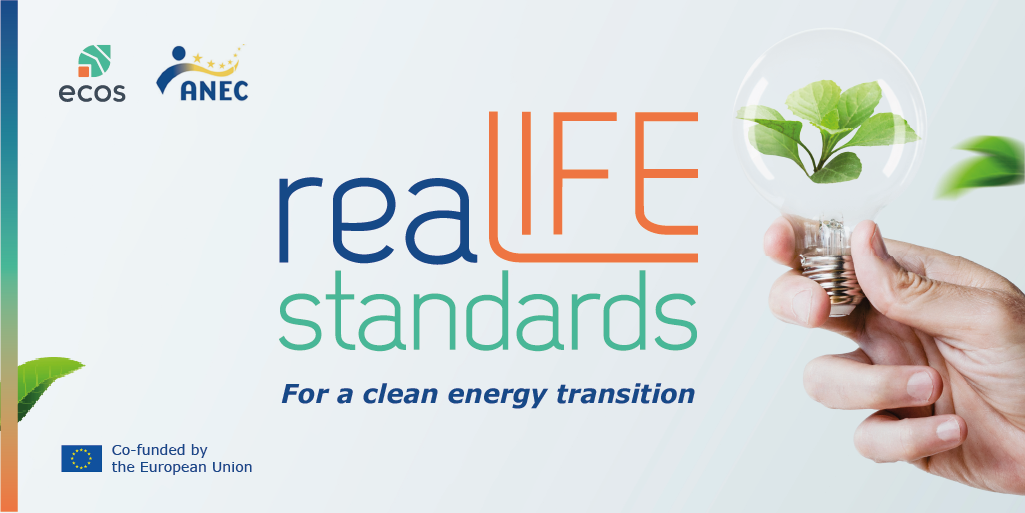reaLIFEstandards: New project will strengthen environmental and consumer voices in standardisation
Standards are a hidden pillar of EU policymaking, with the power to make or break legislation. Every part of our lives is touched by them – from the walls of our homes to the appliances inside. To ensure a clean energy transition, standards must be developed transparently, inclusively, and with a strong focus on the environment and consumers. This is the goal of the reaLIFEstandards project.

ECOS, the Environmental Coalition on Standards, has joined forces with ANEC, the European consumer voice in standardisation, for a new project: reaLIFEstandards. Co-funded by the European Union’s LIFE programme, the project will promote the role of environmental and consumer interests in many of the standards that underpin Europe’s clean energy transition – including those focusing on everyday products like heat pumps, televisions, electronic displays, or washing machines.
Standardisation has the power to safeguard the wellbeing of individuals and the environment. It is essential for implementing EU ecodesign and energy labelling regulations, which govern the sustainable design and performance of numerous products and contribute to energy savings – if the standards are right. ECOS and ANEC have worked on ecodesign and energy labelling standards for a decade. The reaLIFEstandards project will reinforce our work in these areas.
Europe’s goal of climate neutrality by 2050 depends on ecodesign rules with strong environmental principles – and improvements are needed. Existing regulations do not always fully consider usage patterns or use test methods that reflect average end-user behaviour. This must change to secure that energy efficiency claims are as good as the (standardised!) paper they are written on. We will also investigate areas such as energy management to see how civil society can best contribute.
As two of the most active NGOs empowered to represent environmental and consumer interests when standards are developed, ECOS and ANEC offer important perspectives to this industry-driven process. Without our input and technical expertise, there is no guarantee that standards will consider environmental or consumer points of view – and with the climate crisis accelerating, such views must be fully embraced within the standardisation process. Throughout our 3-year project, ECOS and ANEC will make this happen by participating in technical work within European and international standardisation organisations.
As well as strengthening our own capacity via the reaLIFEstandards project, we also seek to promote capacity building, best practice sharing, and collaboration among policymakers, standardisers, and other NGOs. Together, we can realise a clean energy transition, reduce costs for consumers, stimulate innovation by manufacturers, and contribute to the fulfilment of the EU’s social and economic objectives.
Let’s make sure that EU policy is built on strong foundations and move towards an energy transition that is clean, green, and fair.

 By
By  By
By 
